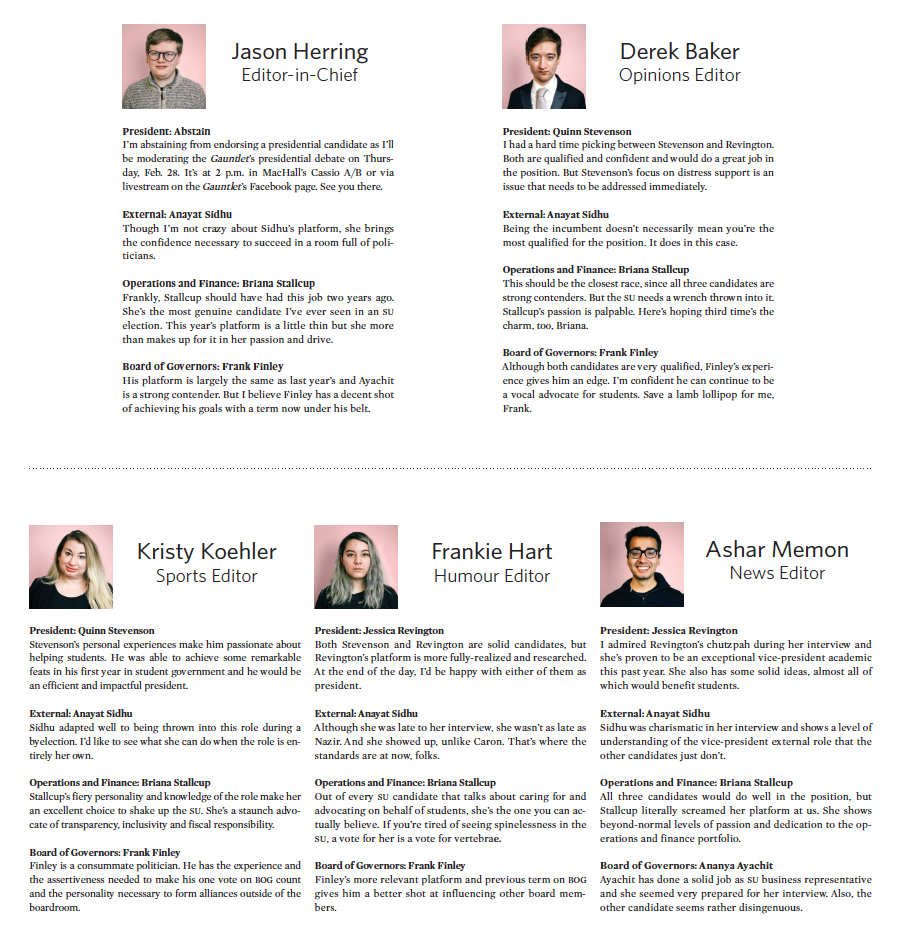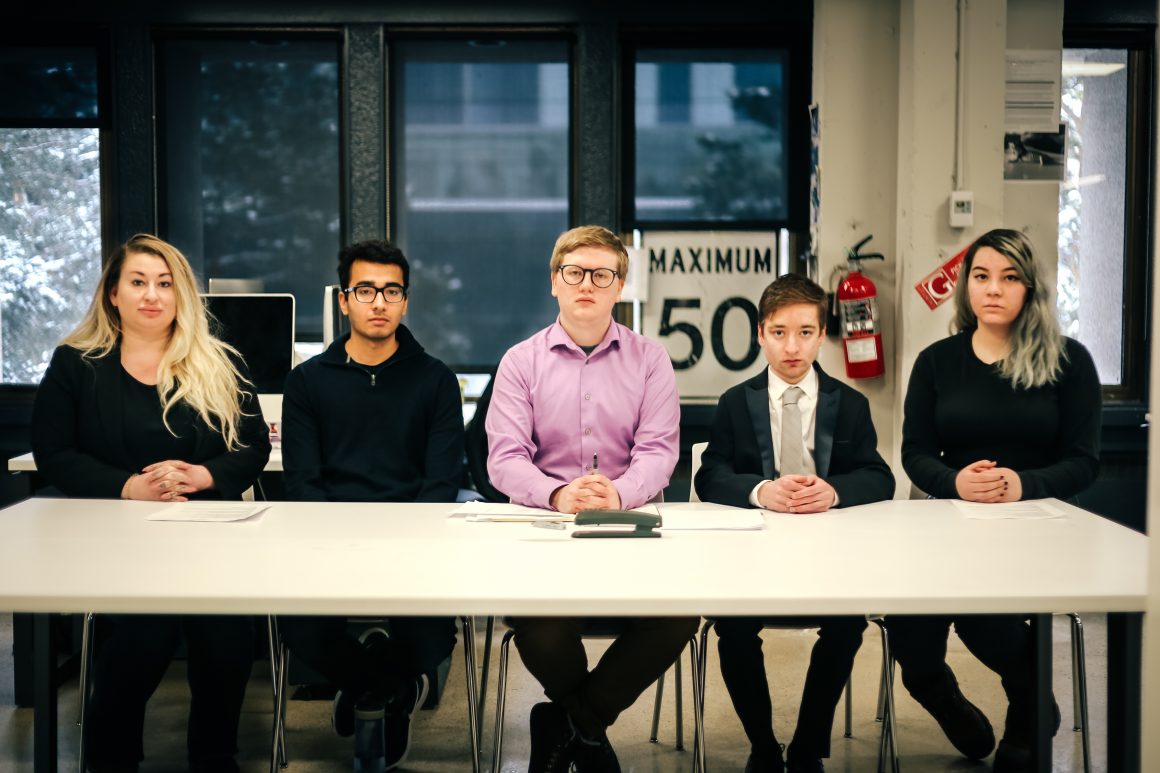
2019 Students’ Union Election Supplement
Panelists
President — External — Operations & Finance — Student Life — Academic — Board of Governors
Endorsements
It’s that time of year again. Posters are plastering the walls, self-important student politicians are interrupting you on your way to class and there’s a guy standing in the front of your economics lecture dressed like Woody from Toy Story. It feels like the first snow of winter.
We love the Students’ Union election, which is one of the reasons why we make this supplement that you’re currently reading. Just like how all these folks are passionate about serving the student body and bringing change to campus — or getting that sweet resumé line — we’re passionate about informing students about who’s running, what they want to do if they’re elected and how likely it is that they’ll actually get those things done.
On Family Day weekend, we compiled a panel of our staff, cleaned the office, put on some nice clothes for once and interviewed (almost) every executive and Board of Governor representative candidate in this year’s SU election. Each interview follows the same format: We give each candidate up to five minutes to pitch their platform, then spend 10 minutes asking them questions. After that, we write up these little profiles to help inform students about the crowd of candidates.
There’s a number of pressing issues at the forefront of this year’s election, but the biggest theme is change. Upcoming provincial and federal elections could mean significant political shake-ups both in Alberta and throughout Canada. Plus, new University of Calgary president Ed McCauley is settling into his job. If there’s any time to push for change external to the SU, it’s now.
Beyond that, issues surrounding Open Educational Resources, Bermuda Shorts Day, MacHall redevelopment, policy reform, long-term financial stability for the SU, mental health and sexual violence are all central to one or more of the contested positions in this election. These are things that affect all students and SU elections have a significant impact on how those issues are handled. It’s your electoral duty to elect competent officials to represent you. Take that responsibility seriously.
In addition to the elected positions, this year also has a referendum for increasing the SU Volunteer Services fee from $0.75 to $1.50 for full-time students per semester. You can read our thoughts about that in our editorial at the front of this supplement. We’ll also have news coverage of the referendum throughout the campaign period online at thegauntlet.ca.
And make sure to vote through your myUofC student centre from March 5–7, ya turkeys.
Panelists

President
The president is the leader of the Students’ Union. They have the most flexible portfolio, but are generally in charge of setting the direction of the organization. They also maintain official relations with the university, oversee the work of Students’ Legislative Council and vote on the Board of Governors. Look for an assured, pragmatic candidate who is aware of the challenges facing the SU.
Harrison Montgomery
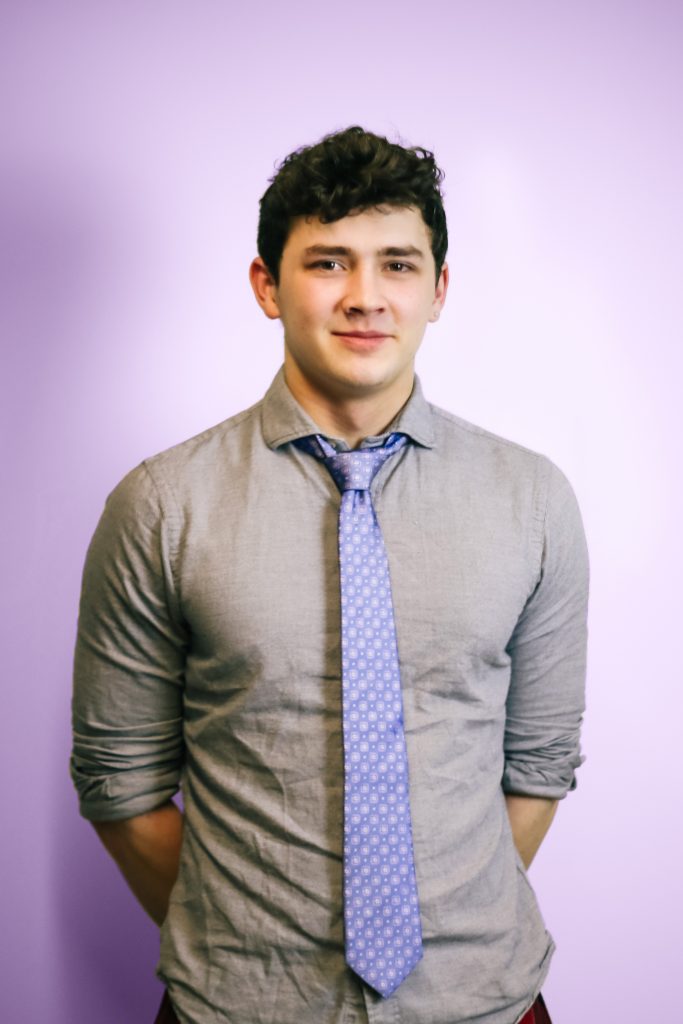
Harrison Montgomery is a well-intentioned but inexperienced presidential candidate, having held no previous Students’ Union role.
When asked why he didn’t run for a faculty representative or vice-presidential executive position and work his way up the ladder, he admitted that he has no experience in these types of roles. Montgomery said that he sees himself as more of a leader who relies on the people around him for their expertise. He added he is running because he would like to impact the way the SU operates, specifically the way they present funding decisions to students.
His “keystone project” involves lowering the price of food and beverages at SU-operated businesses. Montgomery fails to understand the impact this would have on SU revenues. He erroneously believes the increase in quantity would compensate for the lower prices. He also doesn’t understand the impact that rock-bottom prices would have on the several student staff who depend on SU-operated food outlets for employment.
When asked how he would preserve funding for the SU in the case of a potential government policy that makes student fees optional, Montgomery answered that he would make sure fees that go towards services like the Refugee Student Program remain mandatory. While a noble thought, it lacks an awareness of how government legislation actually works. However, Montgomery did say that he wants to increase transparency and ensure that students understand where their money goes to make sure they see value in SU programming — a formidable goal for a presidential candidate.
Montgomery is personable, friendly and has the best interests of students at heart. He has a strong desire to improve transparency at the SU and ensure that students are being well-represented in all stages of the decision-making process. He would work well with the people around him and lean on them for their expertise.
Overall, Montgomery lacks an understanding of the way the SU operates and does not have the experience necessary for the role. He should consider running again next year in a faculty representative role, as he would be a strong advocate for student concerns.
Selected Qualifications
• Manager, Sharps Farm
• Owner, microgreen distribution company
• Food service, Kilkenny Irish Pub
Renzo Pereyra
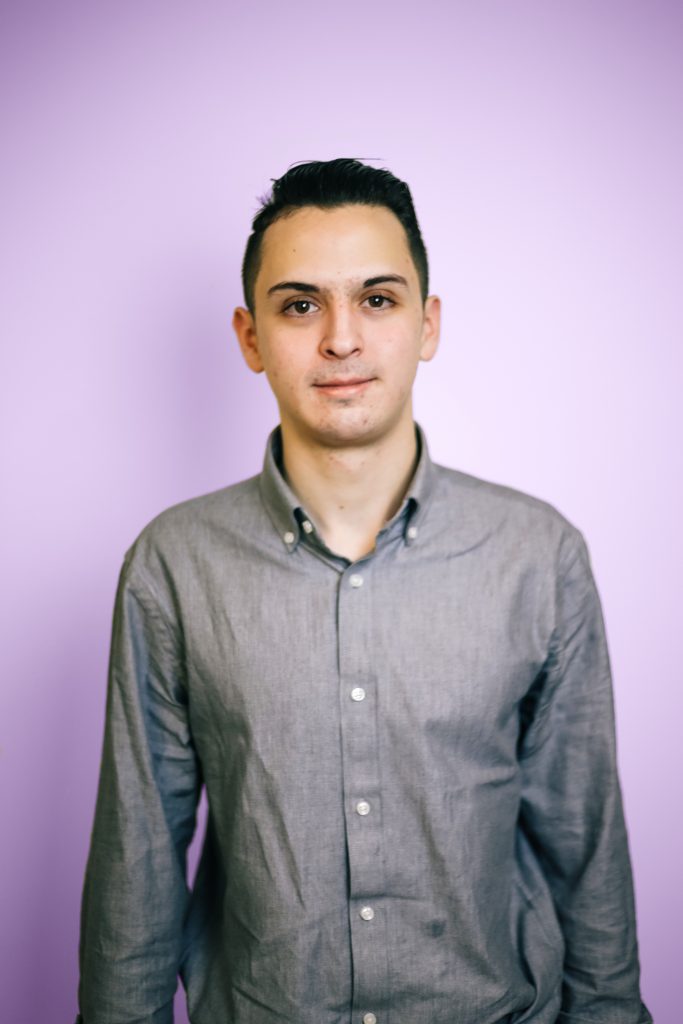
You certainly can’t fault Renzo Pereyra for his ambition. A first-year student, Pereyra says he’s gunning for the presidential position to be a voice for students. While he is in tune with problems students at the University of Calgary face, the uninspired solutions he proposes for these issues can be attributed to a lack of experience.
Pereyra’s three platform points focus on endemic issues facing the University of Calgary student experience: A lack of campus culture, expensive academic supplies and finding employment after graduation.
To improve campus culture, Pereyra wants to encourage higher attendance at Dinos games. He attributes low spectator numbers to a lack of publicity and proposes that the solution lies in more advertising by the SU. However, student engagement with the SU itself is limited, decreasing the reach of SU advertising — he points out that the U of C Confessions Instagram page boasts more followers than the SU’s. It will take more than just a Facebook post to get more fans in the stands.
Pereyra’s correctly points out that, on average, U of C students pay more for their textbooks than other major Canadian universities. Rather than just say that he’d try to lower prices at the bookstore, Pereyra proposes two more attainable solutions: advocate for better textbook rental prices and look at providing more funding to the SU’s used bookstore. However, Bound and Copied operates on a consignment basis, taking a 25-per-cent consignment fee — cheaper textbooks at the used bookstore must come with a hit either to Bound and Copied or students themselves trying to resell their textbooks.
To address student employment, Pereyra says he will advocate for more funding towards government programs like Summer Temporary Employment Program, as well as for the university to provide more research opportunities for students on campus. Though the presidential position’s purview is all-encompassing, his pitch on how he would achieve these solutions lacked the know-how we would expect from a vice-president
academic or vice-president external candidate.
When asked about the potential of SU fees becoming non-mandatory, Pereyra says he agrees with the premise and that students should not be required to pay.
It’s impressive how well Pereyra handled himself during our interview for a first-year student. A self-described “people person,” Pereyra says he doesn’t believe in fighting with administration if the interests of students and the university don’t align, rather relying on respectful dialogue.
It’s going to be a tough campaign in a field with two well-versed candidates, but Pereyra’s ambition this early in his degree is admirable. If he can get a bit more experience, which can only be gained with time in on-campus student organizations, watch out for him in the future.
Selected Qualifications:
• Communications and political science student
• High school debate team
• Passion for advocacy
Jessica Revington

With a thoughtful platform, plenty of personality and more than enough experience, Jessica Revington is a confident and capable candidate for the next Students’ Union president.
Revington’s first platform point is about engaging with students. She says she wants to meet with department clubs and large student groups in order to hear from a more representative cross-section of the student population. While getting students to give a shit is notoriously difficult, Revington’s approach could be effective.
Revington wants to focus her advocacy on deferred maintenance, per-student mental health funding, requiring student consultation for future tuition increases and pushing for more representation in student government among marginalized communities.
Revington’s one questionable platform point pertains to strengthening the SU’s financial independence. Currently, the SU collects a $32.50 levy from full-time students per semester. Revington wants to lower that number — with the potential goal of eventually eliminating it entirely — without cutting SU services.
It will be important for students’ unions to prepare for a future in which their fees may be made voluntary. The U of C SU is in a unique position to be able to generate revenue outside of their levy through their MacHall businesses. But it’s tough to imagine them not having to cut some services if they were to eliminate their fee. To Revington’s credit, it’s a bold platform point that aims to tackle a potential threat to the organization head-on, but it may not be entirely feasible.
Revington is currently the SU’s vice-president academic. She says she’s most proud of reworking the URS into a three-day event with higher student turnout and more sponsor dollars. It’s an impressive feat that makes it easy to be confident in her ability to get things done.
While it shouldn’t be the narrative that defines this presidential race, it is worth noting that if Revington won, she would be the organization’s first female president since Lauren Webber held the role in 2010–11. Eighty-six per cent of presidential candidates this decade have been men. Revington posits that this lack of diversity is cyclic, with women not feeling comfortable to run because they don’t see themselves represented.
“I’ve waited, personally, for a strong female leader to be in that position so I could someday see myself in that role,” Revington said. “I’ve waited for five years. I’m done waiting.”
There’s no question that Revington would bring a wealth of experience, confidence and some fresh ideas, all-in-all making her a strong candidate.
Selected Qualifications:
• SU vice-president academic, 2018–19
• Two-term SU nursing representative, 2016–18
• Leadership and Student Engagement mentor and peer helper, 2014–19
Quinn Stevenson
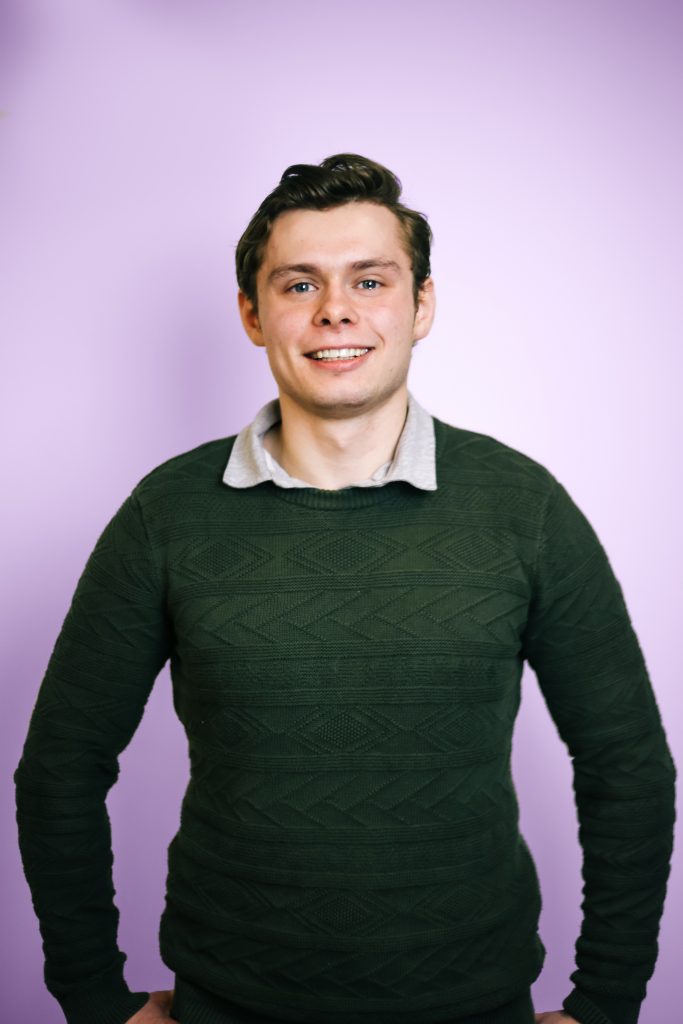
Quinn Stevenson has a fine understanding of the workings of the Students’ Union. Despite an unimaginative platform, his charisma and accomplishments during his time as an arts representative make him a serious contender for president.
Stevenson’s first major platform point focuses on infrastructure needs, mainly pertaining to MacHall. He wants to secure government and university funding to renovate student spaces according to their needs. He also wants to advocate for the university to renovate other areas on campus that aren’t under the SU’s control. Both of these points already fall under the president’s existing responsibilities and Stevenson didn’t clarify what he would do differently to accomplish these goals. However, he did recognize that a MacHall renovation likely won’t be accomplished during his term, which was a refreshing gesture of sincerity.
Another point on Stevenson’s platform includes advocating for improved food-labelling among MacHall vendors, a popular campaign promise that has failed year after year. While food labelling is always an intriguing pledge, Stevenson didn’t clarify how his advocacy efforts would differ from those in the past.
His second platform goal focuses on promoting Open Educational Resources (OERs) and examining National Survey of Student Engagement results to understand why the U of C scores so low. One intriguing aspect of Stevenson’s plan to increase OER use is pushing the university to offer incentives for professors who use them, including increasing their odds of tenure. That would definitely boost OERs into the mainstream but it’s unlikely to actually come to fruition. Both of these goals fall more under the vice-president academic’s portfolio, which Stevenson recognizes. Realizing these goals would mean working closely with that executive and ensuring their efforts are aligned.
Among Stevenson’s best platform points is his commitment to advocating for more mental health funding from governments. He said he would use this funding not for any gimmick but rather for boosting staff and infrastructure at the U of C Wellness Centre.
Most promisingly, during his time as arts representative, Stevenson helped create a program with the university to allow students facing domestic abuse or distressing circumstances to access short-term resources, like food and housing in campus residence. This is a huge accomplishment for a faculty representative and a good sign of things to come.
Overall, Stevenson was calm and well-spoken in his interview, showing thought and care for issues that affect students. While his platform could use some refining, he is a solid choice for president.
Selected Qualifications:
• SU arts representative, 2018–19
• Faculty of Arts Students’ Association representative, 2018–19
• Crafted application to create first-ever Mental Health Scholarship in Canada
External
[hr gap=”15″]
The vice-president external is the Students’ Union’s representative to municipal, provincial and federal governments. They are also the primary delegate for the many umbrella lobbying organizations the SU takes part in. Vote for the candidate you think can hold their own in a meeting with cabinet ministers or city councillors.
Austin Caron
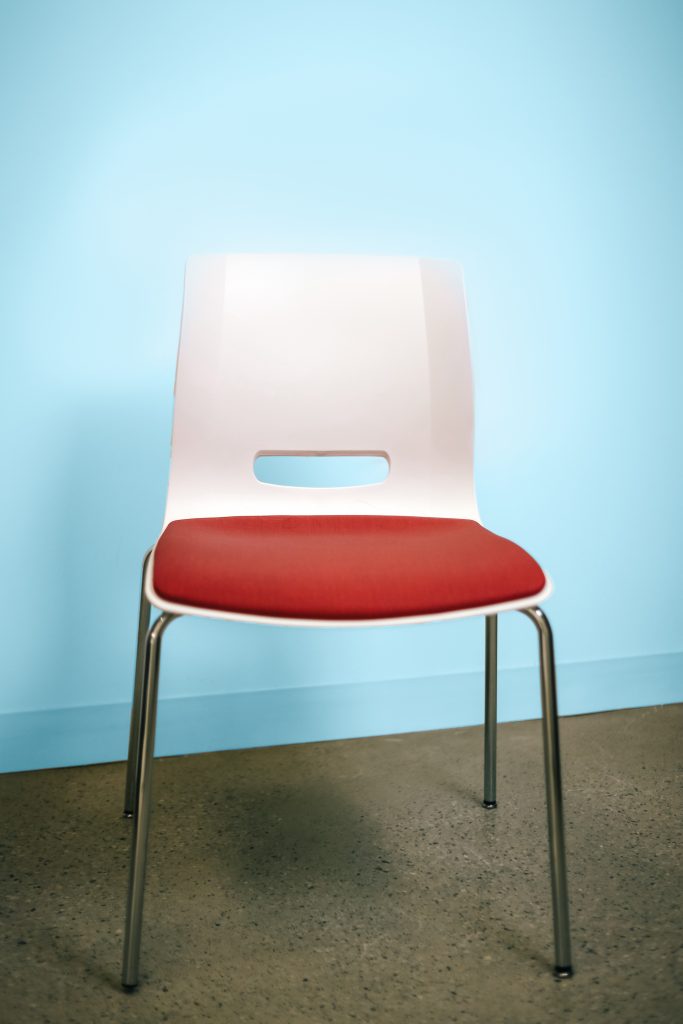
Austin Caron is the only candidate who did not interview with the Gauntlet. Despite his verbal commitment to do so, Caron did not follow through on an interview. If he cannot take the time to go through the campaign process, can he be trusted to meet with elected officials and advocate for student concerns?
Plenty of questions surround Caron’s platform, not least of which is his choice of the word “offensive” to represent the “O” in his campaign acrostic poem of his last name. He doesn’t have a platform in his write-up on the SU’s site, though it does state that he looks forward to unveiling it at a yet-to-be-determined date.
At the time of printing, Caron’s social media links were not active, indicating that he has yet to begin campaigning or revealing said platform, so we’ve got nothing to go on.
His online statement says that the SU needs “the tried and tested leadership of someone with real world political experience, not someone who will lose their way to the bathroom when they get to Ottawa or Edmonton.” Perhaps Caron got lost on his way to the Gauntlet.
The bottom line: Swipe left on Caron and his Tinder-themed campaign gimmick and give your vote to someone who values the electoral process.
Sadiya Nazir
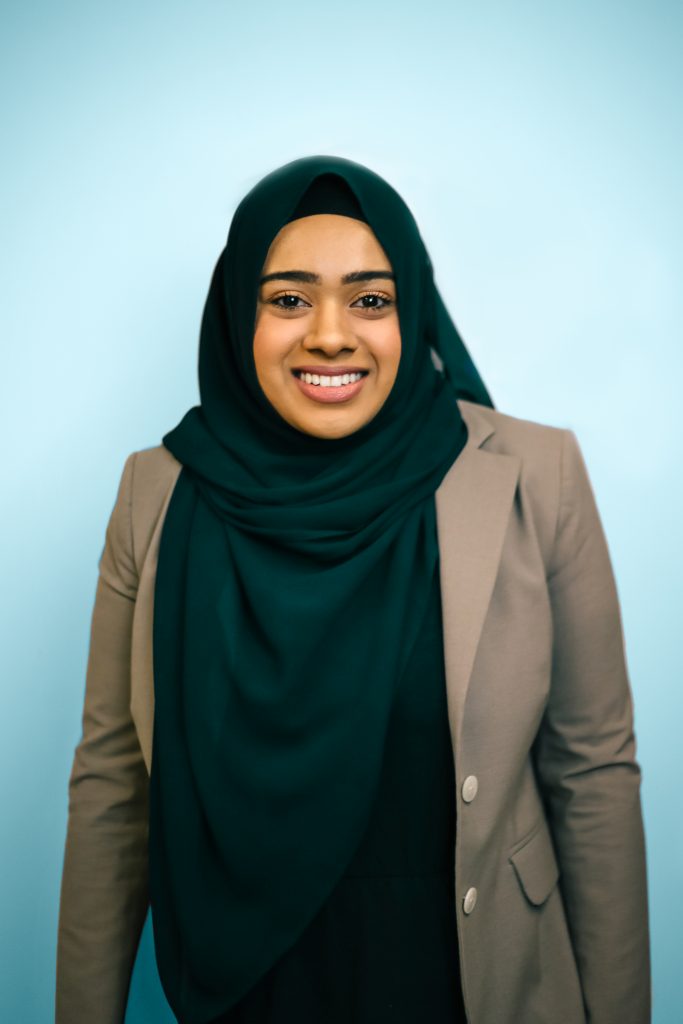
Sadiya Nazir’s bid for vice-president external is backed by a well-crafted written platform, some solid ideas and past experience as an SU science representative. Unfortunately, her interview didn’t exactly inspire confidence.
Nazir’s distinguishing platform point is to make university more affordable for students. She said that she wants to advocate for government funding for Open Educational Resources (OERs) and regulate international student tuition.
On OERs, Nazir said that she’d work with the next vice-president academic to lobby the government for increased funding. OERs are under-utilized and have the potential to save students thousands of dollars, so this is a much-welcomed advocacy goal.
Further, regulations on international student tuition is another excellent idea. But it’s a tough sell to governments and universities. Still, she correctly stated that the U of C plans to increase the proportion of international students to 20 per cent over the next few years, showing that she’s at least done some research on her platform points.
Increasing student employability is another goal of Nazir’s. To do so, she plans to advocate for expanding the Summer Temporary Employment Program. Nazir also plans on putting in a bid to be vice-chair of the Council of Alberta University Students, which could place the SU in a prime position to champion student issues.
Nazir’s final platform point focuses on increasing student awareness of the importance of voting. Aside from get-out-the-vote, she wants to host an on-campus candidate forum for federal election candidates to inform students of their choices. These are solid but unoriginal ideas that are more of a requirement and less of a campaign pledge for a VP external.
It’s clear that Nazir did some research into the position, though worryingly, she couldn’t correctly identify either the city councillor for the university’s ward or its federal member of Parliament. Despite this, her understanding of the importance of the role, especially in an election year, is a good start.
If we had just read her platform, Nazir would appear to be a solid choice for VP external. But her interview raises some doubts.
After arriving 20 minutes late and without an excuse, she seemed flummoxed with our questions — not a promising quality for a candidate who would be representing thousands of students in meetings with elected officials.
Nevertheless, Nazir’s solid ideas and well-crafted platform buoy her as a considerable candidate in the VP external field. Perhaps with some further preparation, Nazir could do her ideas more justice.
Selected Qualifications:
• SU science representative, 2018–19
• Get-out-the-vote volunteer, 2015, 2018–19
Anayat Sidhu
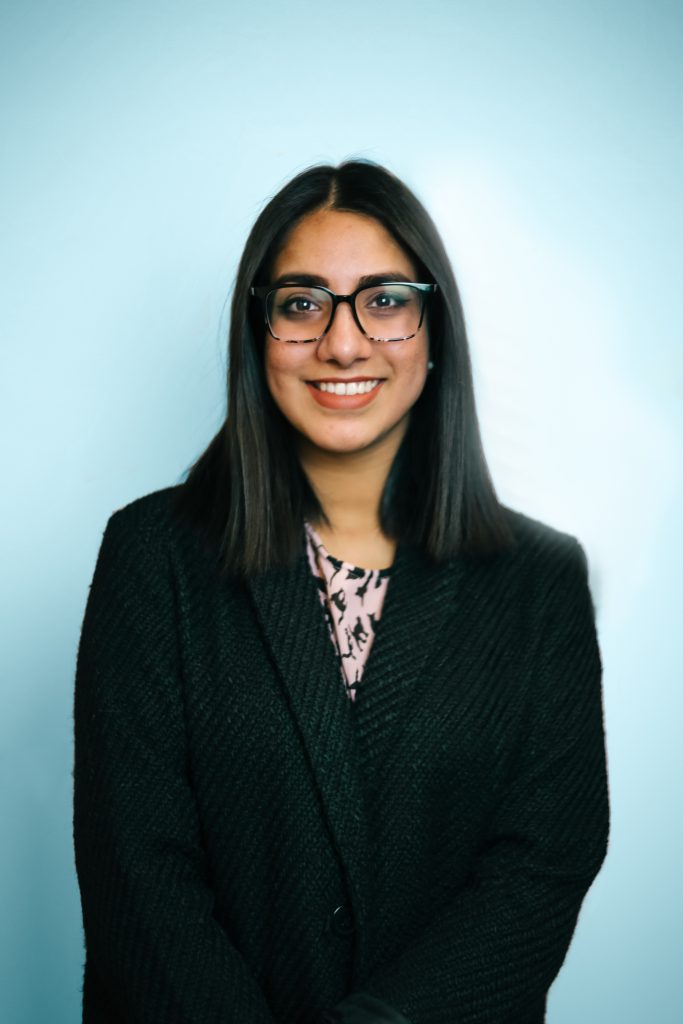
Update, March 4: Anayat Sidhu has been disqualified from the VP external race. The Gauntlet is keeping her profile online for posterity.
Anayat Sidhu, the SU’s incumbent vice-president external, hopes to return to the role for what’s set to be a busy term, with both provincial and federal elections upcoming. She brings with her a competent platform and a passion for advocacy.
Sidhu entered the VP external role in a November 2018 byelection, meaning she’s only spent a few months on the job. During that time, she says her biggest accomplishment was bringing the #StudentsLetsAct mental health campaign to the University of Calgary.
Much of Sidhu’s current work was set out for her when she took helm of the VP external portfolio mid-year. As such, she seems eager to forge her own goals if elected again next year.
One goal is creating more employment opportunities for students. Sidhu says she’d like to do this by asking the federal government to provide more funding to the Summer Temporary Employment Program to provide the option for year-round work and to help employers subsidize more jobs. She also brought up having work-integrated learning options for any degree, meaning that students would have the opportunity to apply their studies in a workplace, no matter their area of study. Though these are admirable goals, their feasibility is questionable.
Sidhu’s best platform points revolve around student mental health. She stressed that she wants to see the definition of ‘permanent disabilities’ under the Canada Student Loans Program expanded to include episodic illnesses. Beyond that, Sidhu wants guaranteed per-student mental health funding for the U of C and the development of a federal sexual violence standard for campuses. These three goals all feel concrete and achievable, making them easily the strongest of Sidhu’s platform.
One of Sidhu’s final points focuses on giving students a grace period — until they’re making a living wage — before student loan repayment. The proposal is quite similar to one recently cut by Doug Ford’s government in Ontario. Given the somewhat parallel trajectory Alberta’s politics seem to be following to Ontario’s, this seems like an unlikely proposition, though one that would undoubtedly benefit students if it were to be implemented in any capacity.
Sidhu seems somewhat unconcerned about a potential policy to make SU fees voluntary.
Lobbying politicians and political hopefuls face-to-face and making connections is Sidhu’s preferred style. Sidhu is a confident and persuasive speaker, though she can get off track easily. Still, she’s someone students should feel comfortable talking to politicians on their behalf. Vote for her if you want a steady voice for students.
Selected Qualifications:
• SU vice-president external, 2018–19
• Two-term University of Calgary senator
• Researcher at Hotchkiss Brain Institute
Operations and Finance
[hr gap=”15″]
The vice-president operations and finance is responsible for the Students’ Union’s budget, SU policy and the fiscal operation of their businesses in MacHall. They also chair several SU committees.
Omer Mansoor
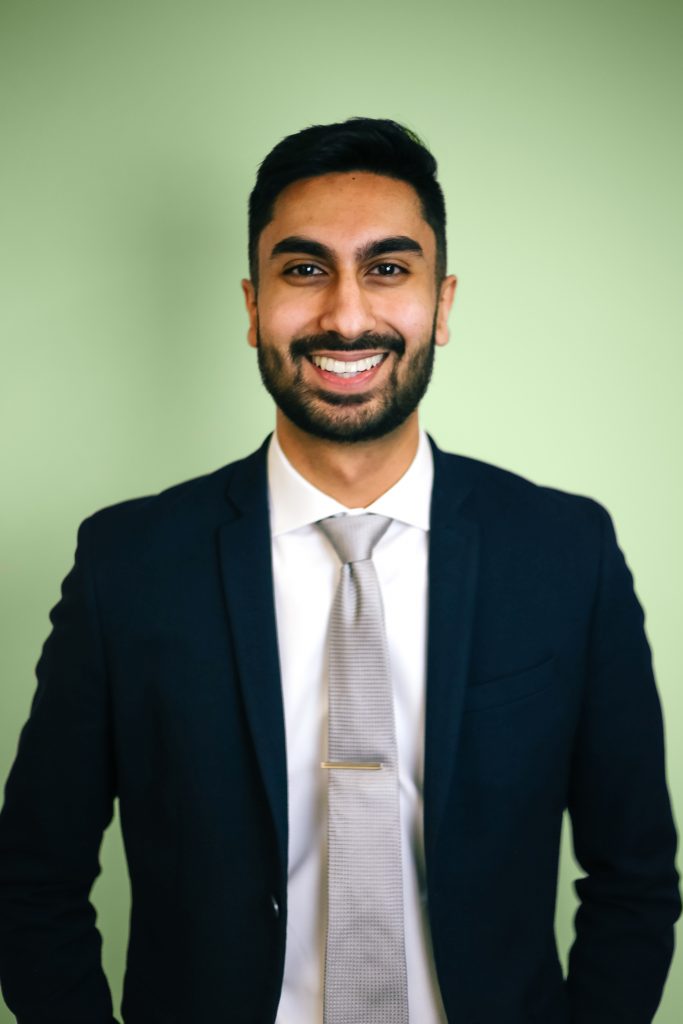
With a detailed and well-thought-out platform, Omer Mansoor shows that he knows the operations and finance role well. His long list of feasible ideas and his past experience as a science representative make him a strong and safe candidate for the position.
Mansoor’s first platform point focuses on improving campus spaces, including renovating MacHall. Mansoor said he would hold a referendum to allow students to express whether or not they’re okay with footing the bill of the redevelopment, adding that he would prefer the renovations to be small-scale, with the focus on specific spaces like The Black Lounge.
Further, Mansoor said he would also like to identify classroom spaces around campus that could use redevelopment. He proposed the Classroom Alteration Request and Facilities Alteration Request as sources for funding these renovations, showing a thorough understanding of university processes and research into this platform point.
Mansoor also said that he wants to increase food choices on campus. Diversifying food choices has been a popular but unfulfilled platform point for previous candidates. Mansoor admitted this and said his idea is different because he wants to focus mostly on SU-run food vendors. He correctly identified the people he would work with to follow through with this promise, hopefully showing that he intends to keep it.
One notable absence from his platform is Bermuda Shorts Day. When asked during his interview, Mansoor said that he doesn’t believe students should have to pay an entry fee for the event, even if that meant the SU “takes a hit.” He proposed exploring additional funding opportunities like Quality Money or a grant from the Operations and Finance committee. It’s questionable as to whether funding would be permitted for BSD through these mechanisms. Even so, a lack of consideration for the growing financial liability of hosting this event is a major concern.
Other points on Mansoor’s extensive platform include improving the transparency of SU committees, specifying roles on the recently expanded Refugee Student Board and implementing a ‘yes/no’ vote for candidates running unopposed in SU elections — all of which would be much welcomed.
After narrowly losing his bid for a SU executive position last year, Mansoor proved in his interview that he is still brimming with ideas that could help students. Overall, Mansoor is a safe choice for vice-president operations and finance.
Selected Qualifications:
• SU Faculty of Science Representative, 2017–18
• Operations & Finance Committee member, 2017–18
• President, Biology Students’ Association, 2018–19
Briana Stallcup
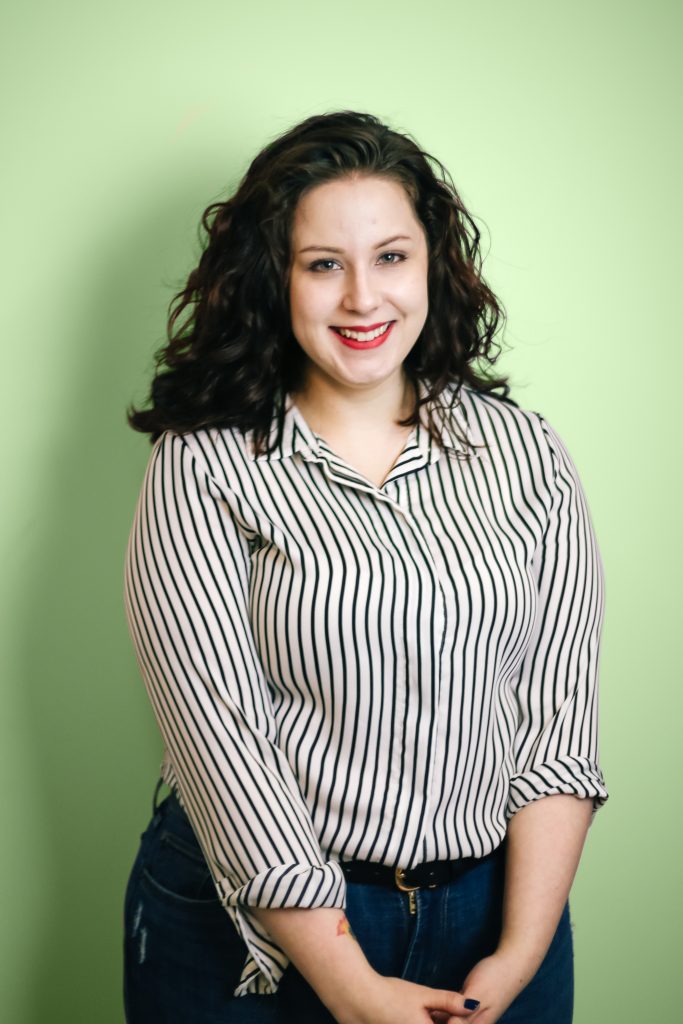
Briana Stallcup is hoping the third time’s the charm. She’s running to be the SU’s vice-president operations and finance after being defeated in her bid for the position in the past two general elections. Once again, she brings the anti-establishment fervor that characterized her past campaigns.
Stallcup’s platform focuses exclusively on three main issues: Reallocating student funds, reforming Bermuda Shorts Day and redeveloping MacHall. The first point revisits a sticking point for Stallcup, which is abolishing Colour Night — a post-election celebration for SU election winners — and replacing it with a meet-and-greet. Beyond Colour Night, Stallcup wants the SU to stop hosting out-of-town retreats and training sessions.
When it comes to BSD, the SU’s annual end-of-year celebration that lost nearly $100,000 in 2018, Stallcup says that the event doesn’t need to generate profit but that it shouldn’t be losing as much money as it is now. Instead of charging an entry fee, she says that she’d work with the University of Calgary’s new administration to make the event more affordable. While the introduction of a new president provides hope that some of the costlier aspects of BSD will be more affordable, it won’t be easy to fix an event that’s been in a financial tailspin for years.
Finally, Stallcup says she wants to redevelop MacHall. She says that the SU’s recent survey results, which show that two-thirds of students want to see updates to the student centre, demonstrate student interest in the project and that the SU should push for an agreement with the U of C that could make redevelopment happen.
Stallcup says that she is keen on election reform, particularly for processes dealing with acclamations and appointing students to vacant positions, arguing that the current procedures undermine student democracy. She’d also like to implement a sexual violence policy to deal with candidates in SU elections who have harassment or assault claims.
One area that Stallcup doesn’t mention in her platform is a strategy for potential provincial legislation that would make SU fees voluntary. She says that the SU needs to do a better job making sure they are providing value in order to insulate themselves against a policy like that. “People don’t like [the SU] and I think they should acknowledge that,” Stallcup said.
Fiery quotes like this beg the question of how Stallcup would work with other SU elected officials and staff if elected. She says that she’s not inherently combative but that she expects people to be able to sufficiently address her concerns.
But maybe some combativeness is just what the SU needs. Stallcup would certainly shake up the organization. Just like in past years, she’s a strong candidate who you can be sure will never back down from a fight.
Selected Qualifications:
• Vice-president operations and finance, Consent Awareness and Sexual Education Club, 2017–19
• Director of operations and finance, Faculty of Arts Students’ Association, 2017–18
• Director of communications, Society of Undergraduates in Economics, 2016–18
Jarin Thundathil
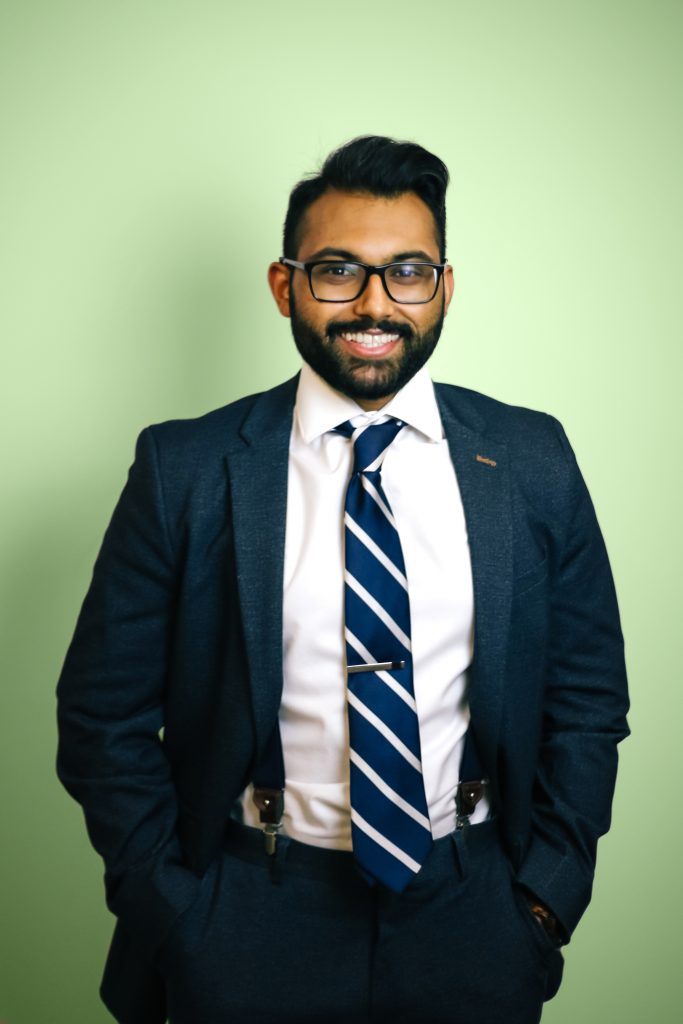
Thundathil began his interview stating that we’re entering a year of change — a new university president, a new SU strategic plan and a potentially new provincial government. As such, he believes his platform will ensure that the SU is well prepared for that change.
As a current medicine representative, Thundathil has been an effective member of SLC, providing thoughtful feedback during policy consultations. His experience and ability to get results make him a competent candidate.
Thundathil’s strongest platform points are about SU policy reform, specifically surrounding transparency — and not just as a buzzword. He wants to open the budget meeting of the Operation and Finance Committee to the public. He wants to release the shortlist of applicants for positions filled by the Nominations Committee, allowing students to still know the platforms and qualifications for the unelected student appointees. Following student association expense scandals in Ontario, he wants the SU to release its credit card statements quarterly.
Additionally, Thundathil wants to undergo a compensation review for faculty representatives. He points out that there is a large financial barrier to running for Elected Official positions — students who must work other jobs to support themselves cannot devote the time it takes to be an effective faculty representative for only a $300 monthly honorarium. He says that increasing compensation would require increasing reporting stringency to ensure quality work.
A concerning part of Thundathil’s platform is his plan for pursuing redevelopment of MacHall. He claims that neither the SU nor administration are in a financial position to pursue significant redevelopment at this time. Therefore, he’d like the SU to solicit third-party donations and potentially transition from a non-profit to a registered charity.
Beyond the issue of the SU potentially being beholden to a third-party’s interests rather than students’ interests to receive funding, a students’ union is not a charity. Bluntly, this is a bad idea.
We ask all candidates to list one thing their predecessor did well and one thing they’d do differently if elected. Thundathil was reluctant to find something to critique about current VP Kevin Dang. You cannot be afraid to provide criticism when drafting or revising policy.
Overall, Thundathil is a qualified candidate for the operations and finance position. If you’re fine with how the SU is operating, a vote for Thundathil is a vote for safe and reasonable change.
Selected Qualifications:
• SU medicine representative, 2018–19
• Analyst, DeNovo Student Investment Fund
• VP external, Reforming Education on Drugs
Student Life
[hr gap=”15″]
The vice-president student life is in charge of student clubs, events like Orientation Week, Frostbite and Bermuda Shorts Day, as well as mental health and overall student wellness initiatives. Pick a candidate who understands all parts of the portfolio and is enthusiastic about campus life.
Alisha Gordon
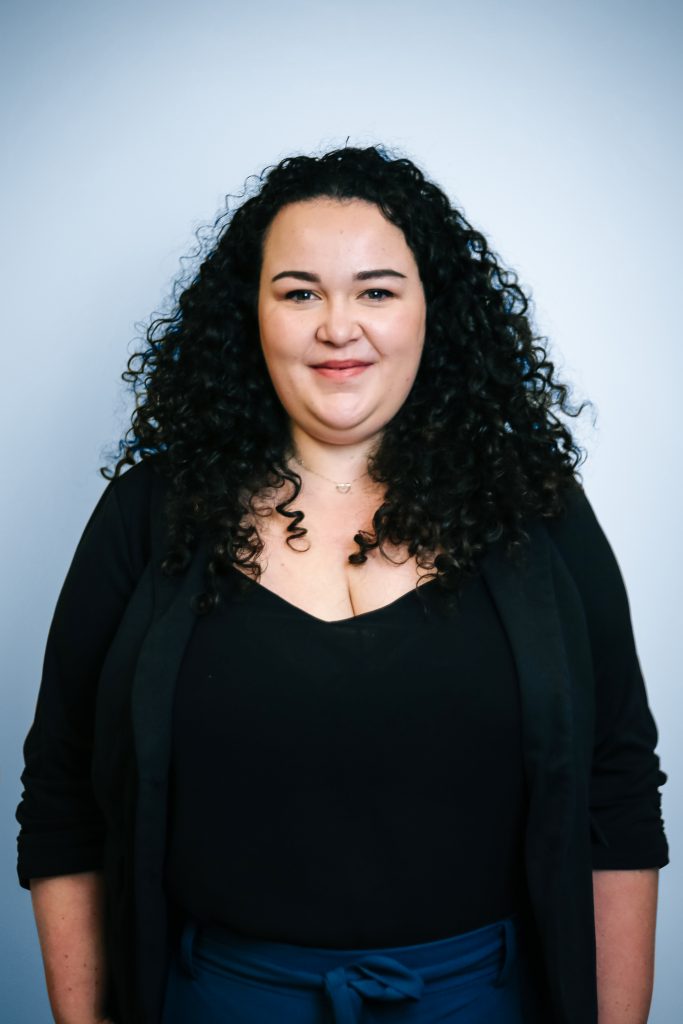
Alisha Gordon is acclaimed as vice-president student life. That being said, she is an excellent fit for the role, having served as an elected student-at-large senate representative for two terms as well as in various committee roles on campus.
Gordon has plenty of experience with student clubs and her passion for their role in student life comes through in her platform.
Gordon is well-versed in the student life portfolio and knows her platform inside out. Her strongest platform point involves engaging with student clubs to increase awareness of the SU, provide better access to conference and event spaces and streamline workshops such as ClubHub101 to make sure they are interactive and meet the needs of club executives.
Mental health is another strong component of Gordon’s platform. She wants to ensure that there are more culturally diverse resources for mental health and that professionals on campus are capable of taking a trauma-informed approach to mental health, something she feels is currently lacking. Ensuring students feel safe in The Den and that staff receive bystander intervention training is one of her concerns. Gordon also wants to expand on her predecessor’s Stress Buster workshops to ensure they work with clubs’ stress-less initiatives, rather than competing with them.
The weakest portion of Gordon’s platform is her understanding of the way the Dining Centre operates. She feels the current system is exploitative and encourages unhealthy eating habits with the ‘all-you-care-to-eat’ program. Gordon means well in this area but should work on fleshing out concrete ideas and solutions to the various issues that exist with the Dining Centre’s meal plans. Gordon also hopes to work closely with Dinos Athletics to increase attendance at sporting events. She should create a concrete plan for this as well.
Overall, Gordon is a competent, passionate advocate for student life. We don’t love acclamations, but we can’t complain that it’s Gordon who got the role.
Selected Qualifications:
• Student-at-large senate representative, 2017–18
• Vice-president external, Faculty of Arts Students Association, 2018
• Committee member, Indigenous Strategy Working Group, 2016–18
Academic
[hr gap=”15″]
The vice-president academic is responsible for improving the academic experience and promoting undergraduate research. Their job mostly consists of sitting on committees, meeting with various members of university administration and administering programs like the Teaching Excellence Awards and Undergraduate Research Symposium.
Kevin Dang
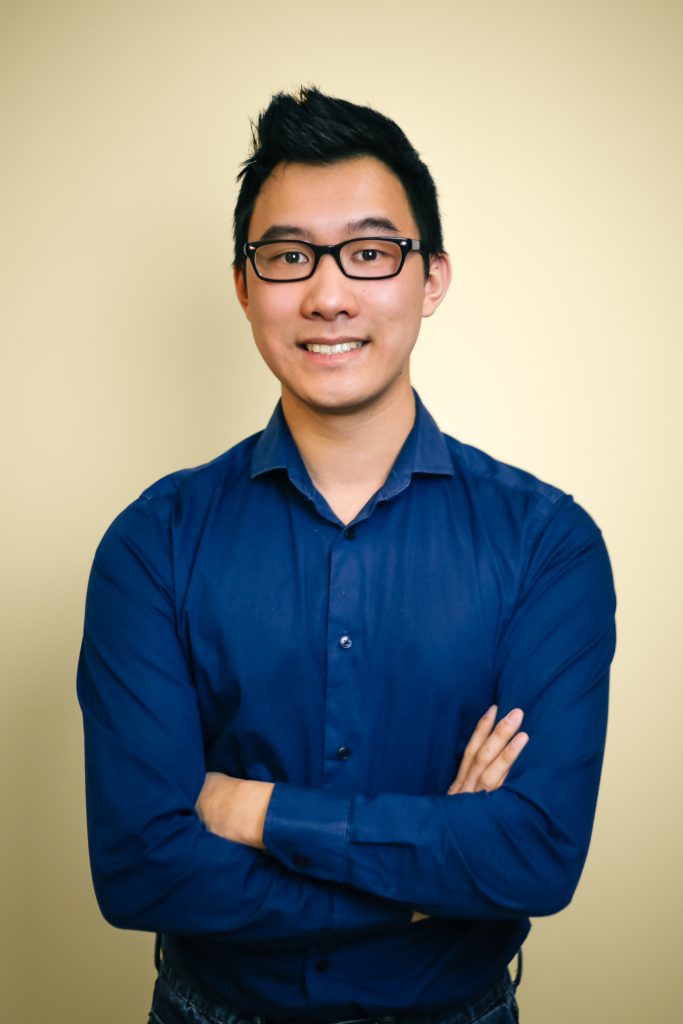
Kevin Dang is acclaimed as vice-president academic.
Dang is an experienced SU executive and has been a fixture on multiple committees. During his time as vice-president operations and finance, he was able to expand the refugee student board and increase the number of students-at-large. Dang says he wanted a new challenge and is excited to learn the ins and outs of the vice-president academic role.
The strongest and most realistic part of his platform involves a further expansion of the Undergraduate Research Symposium. He would like to establish it as a premier, week-long research conference on campus and expand student participation from non-traditional research disciplines as well as obtain more funding. Dang has experience with symposiums like these and is well-equipped to make good on this piece of his platform.
He acknowledges that the role of VP academic can be largely office- and meeting-based but hopes to regularly engage with students. Dang is personable and well-spoken — qualities that make his goal of student outreach very attainable.
Dang says he looks forward to elections and would have preferred a contested race. But, as the current VP operations and finance, he would have been in a charge of changes to elections policy to have made that happen. He claims that the SU simply could not have implemented the ‘yes/no’ vote in time for this year’s election and that “research and prep” is being done.
With the University of Calgary ready to bring on a new vice-president research, Dang is in a unique position to bring some of his platform points regarding increased funding to fruition.
Overall, Dang is informed about the issues facing students and has a solid understanding of the way the SU operates. He is a safe VP academic — don’t expect anything life-changing.
Selected Qualifications:
• SU vice-president operations and finance, 2018–19
• SU science representative, 2017–18
• Science Undergraduate Symposium task force chair and project lead, 2017–18
Board of Governors
[hr gap=”15″]
The Board of Governors manages the operations of the U of C. The student-at-large representative attends BOG meetings and voices student concerns.
Ananya Ayachit
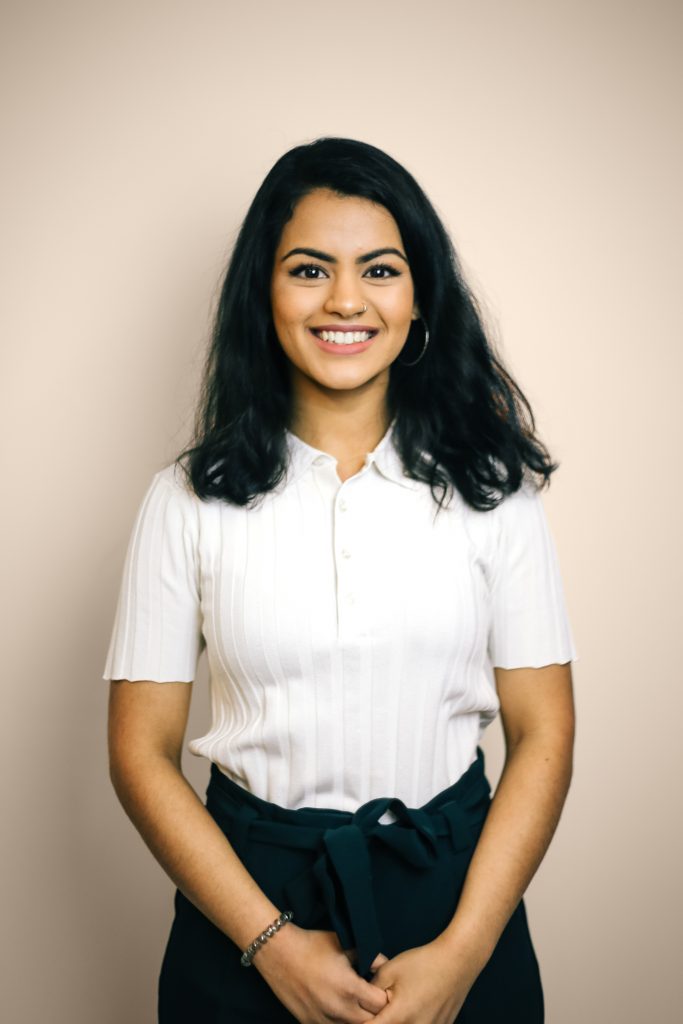
Ananya Ayachit has a solid platform rooted in sufficient knowledge of the responsibilities of the Board of Governors. While many of her platform points are too ambitious for a BOG representative, her accomplishments during her time as SU business representative would make her a valuable addition to the BOG.
Ayachit’s most peculiar idea is to advocate for more frequent reviews of academic programs offered at the U of C to ensure that they meet skills in a shifting job market. To do this, she said that whenever a new program is proposed or revised, she would advocate to BOG to consider the program changes in context of technological advancements.
While Ayachit shows due diligence in her research on this idea, citing the university’s annual Comprehensive Institutional Plan (CIP), this platform point seems unnecessary. The CIP repeatedly states its commitment to creating programs aligned with the tech sector. The U of C also already reviews their programs annually to terminate those with low demand, while most program expansions are under the purview of the province.
Prioritizing infrastructure renovations and expansions is another one of Ayachit’s platform points. Ayachit wants to advocate to ensure deferred maintenance is addressed before a building is forced to close.
By far her most compelling platform point is her desire to bridge the gap between BOG and students. Ayachit criticized current BOG representative Frank Finley’s plan last year to create a committee of advisors from “important” student clubs, deriding it for being exclusive and creating more bureaucracy than needed. She said she would directly consult with faculty clubs to foster her understanding of student priorities.
Consultation is Ayachit’s greatest strength. She highlighted her experience as SU business representative working on a committee for Mathison Hall, a newly-proposed building for the Haskayne School of Business. She said she fought to increase the number of students on the committee and also created a survey for Haskayne students to leverage their interests to the committee. That sort of drive from a BOG representative would prove a benefit to students.
Overall, Ayachit’s past experience makes her a worthy candidate for BOG representative. Perhaps most strikingly, throughout her interview, Ayachit flipped through dozens of pages of what seemed to be responses to every possible question we could have asked. If she brings that level of dedication to the board, she would be a solid choice for the position.
Selected Qualifications:
• SU business representative, 2018–19
• Business strategy intern, ATCO Group
• ‘Engaging Youth’ project strategist, Alberta Council of Technologies Society
Frank Finley
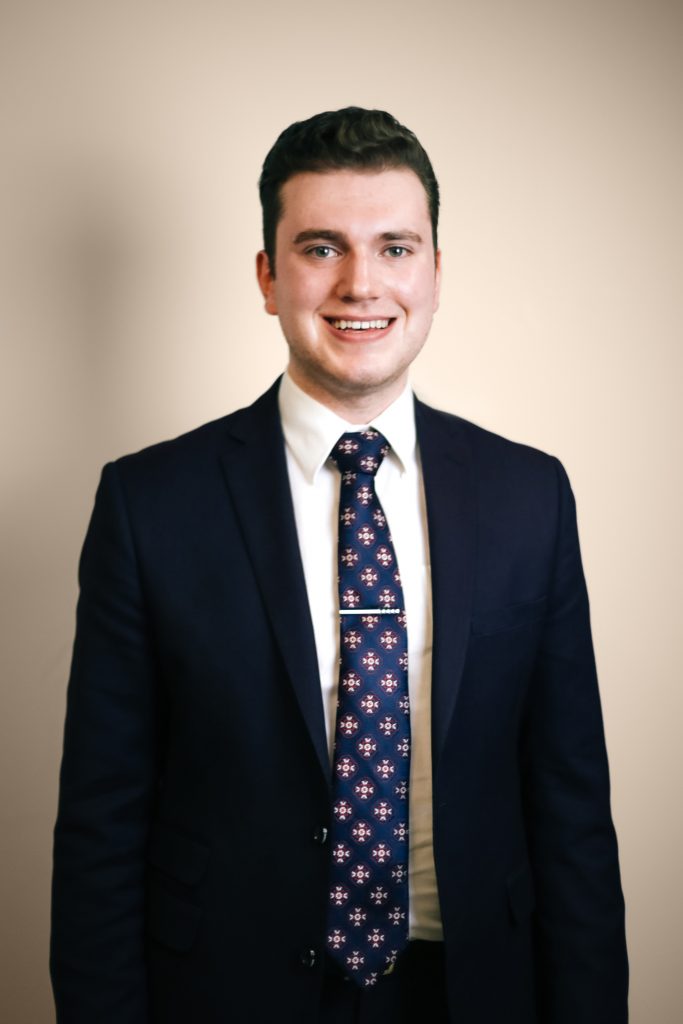
Board of Governors student-at-large incumbent Frank Finley is vying for re-election. If your vote is based on a candidate’s ability to fulfil their previous election promises, you might be hesitant to vote for him again. However, Finley’s eloquence, charisma and ability to represent students on issues beyond the scope of his platform makes him a solid choice for the position.
From infamously asking former U of C president Elizabeth Cannon if she would resign in 2015 to sitting on a board with her, as well as a two-year stint as an arts representative in between, Finley is a well-known student politician. Throughout, he’s been an advocate for students, never shying away from ruffling a few feathers.
A systemic problem with student representation on the BOG is that only three seats on the 21-member board directly represent students. To make his one vote count, Finley says he’s worked on creating alliances with other board members. The key to doing so, he says, is convincing other board members that “what’s best for students is best for the university.”
Last year, Finley campaigned on several points. He wanted another seat on BOG for an undergraduate student. He wanted to increase student attendance to BOG meetings. He wanted a review of the U of C’s Sexual Violence Policy to take place in his term. These things didn’t happen.
Finley’s 2019 platform recycles some previous points. He still wants to increase student engagement with the BOG, be it through increasing the number of seats on it for students or encouraging students to attend their public meetings. This time, however, Finley says he’ll have to go directly to student groups to try to get them to attend. It’s an important initiative to pursue, as having the pressure of students watching BOG meetings can change the tone of the conversation.
New to his platform this year is mental health advocacy. Finley says he was hesitant to include it at the risk of sounding too buzzword-y, but his proposal to have an online feedback survey to inform the next Campus Mental Health Strategy review in 2020, similar to the Sexual Violence Policy’s online consultation, is a tangible goal.
What is most commendable about Finley’s candidacy is what he believes the student-at-large’s relationship with the other BOG members should be. He says he’s “not here for a golden handshake” and that he treats other board members as colleagues, not friends.
We’re always impressed by how well put-
together Finley presents himself. Though he might come across as disingenuous, Finley can present his case in a way university bigwigs can take seriously, making him a solid candidate.
Selected Qualifications:
• Board of Governors representative, 2018–19
• Stakeholder relations intern for the Office of the Premier, 2018
• Two-term arts representative, 2016–18
Endorsements
[hr gap=”15″]
